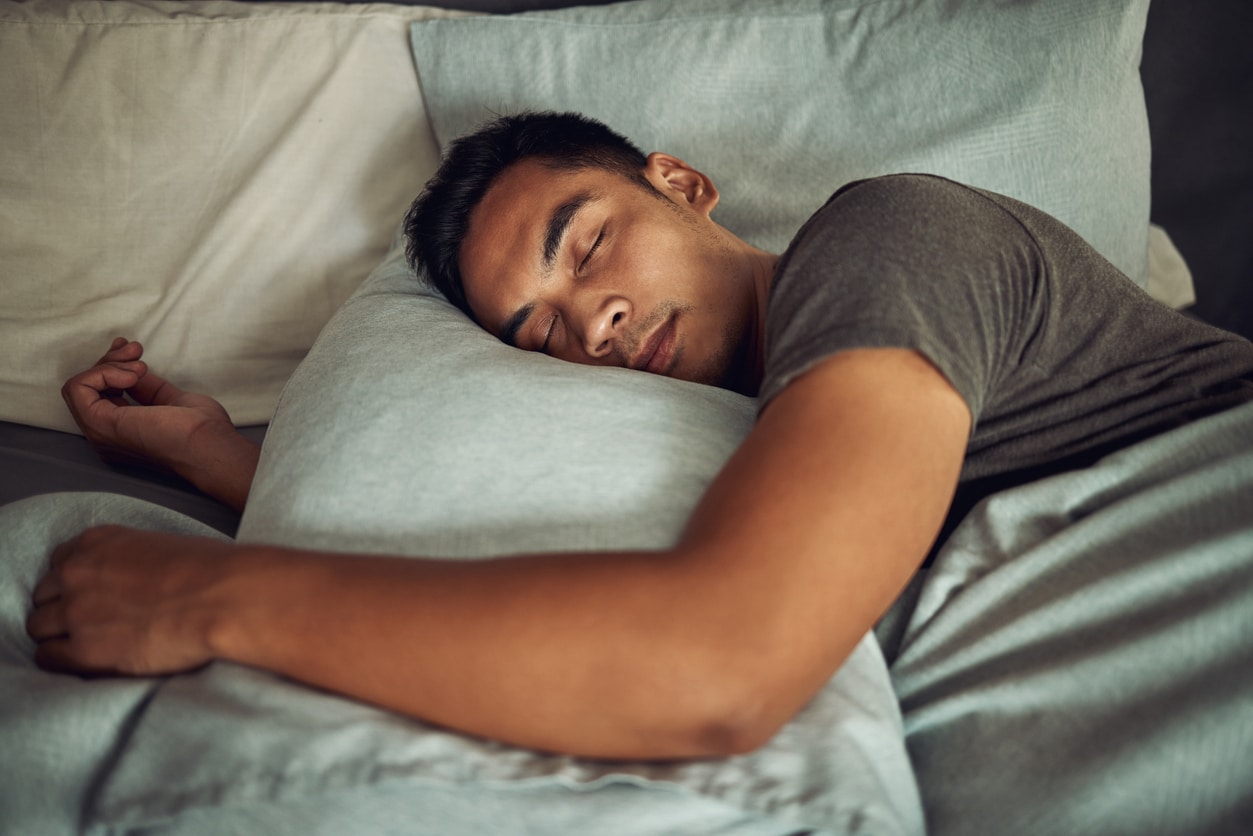Sleep is a vital part of our overall health. Unfortunately, getting a good night’s rest can be difficult if nasal congestion, sneezing and other sinus issues are keeping you up.
Sinus Issues, Breathing and Sleep

If you are suffering from a sinus infection or congestion caused by a cold or another virus, it can make it difficult to breathe through your nose. To compensate, you may start breathing through your mouth when you sleep, which makes it more likely that your jaw and tongue will fall back and block your airway. This increases your risk of snoring and even obstructive sleep apnea (OSA). In fact, research has shown that chronic rhinosinusitis (CRS) worsens sleep quality and is strongly associated with obstructive sleep apnea.
Additionally, symptoms like sinus pain, pressure, postnasal drip and irritated nostrils can prevent you from feeling comfortable enough to fall or stay asleep.
How to Sleep Better When You Have Sinus Pain and Congestion
Thankfully, you can make sleeping with sinus pain and congestion easier by following these few tips:
- Keep nasal passages moist. During the day, consider using a nasal saline spray or neti pot to keep your nasal passages clear. This can often be found at local Columbia stores like True Pharmacy. At night you can use a humidifier to prevent dry air from worsening your symptoms.
- Prop your head up when you sleep. To relieve congestion, sleep with your head elevated on a few pillows and do what you can to keep your head above your heart. Lying flat can allow mucus to build up and clog your sinuses, disrupting sleep.
- Consider taking an antihistamine. If your sinus problems are caused by allergies, consider taking an antihistamine before bed. Not only can they help control symptoms like sneezing and runny nose, but certain antihistamines can also make you drowsy, aiding in sleep. However, make sure to talk with your medical provider before taking any new medication.
- Practice good sleep hygiene. Doing things like avoiding caffeine before bed, keeping your bedroom cool and dark and maintaining a regular bed and wake time can help make sleep easier for everyone, including people with sinus pain.
- Visit your doctor. If you are dealing with severe congestion or sinus issues for longer than a week or have accompanying symptoms like a fever, it could be a sign that you have a sinus infection or other issue that requires medical treatment.
For more information or to have your sinus symptoms evaluated by one of our experts, call Palmetto ENT & Allergy today.
